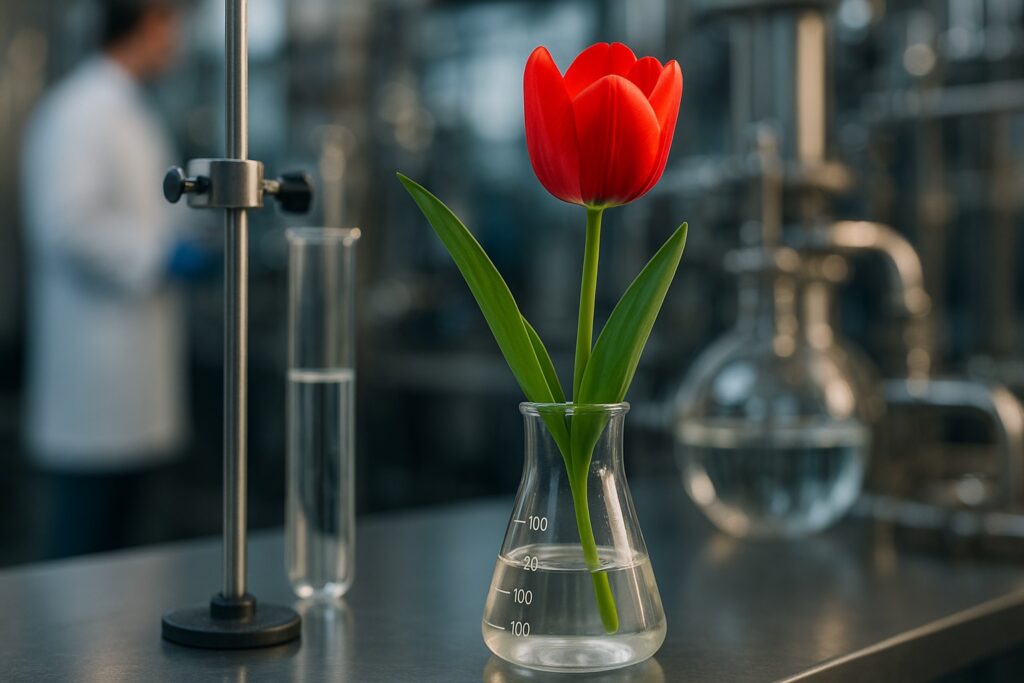Scientists are always looking for cleaner, more efficient ways to make the materials we use every day. One interesting building block is Tulipalin A, which can be used to make special types of plastics and other valuable products.
The production of Tulipalin A involves difficult steps where chemicals must be precisely modified. Often, when using traditional organic chemistry, these modifications need harsh chemicals. So, what if we could use nature’s own tools – enzymes?
Enzymes are tiny protein machines that can perform very specific chemical reactions. Researchers at acib looked at special bacterial enzymes called AlkB monooxygenases, which are transmembrane enzymes. These enzymes are a bit tricky to work with because they are embedded in cell membranes, but they do the desired reaction. However, compared to the reaction they do in nature, the specific reaction needed for Tulipalin A synthesis was still quite slow. So, the scientists decided to improve the enzymes using a technique called “enzyme engineering.” This is like fine-tuning a machine by changing some of its parts to make it work better for a specific job.
By carefully exchanging some of those parts of AlkB, they created new variants that were much better at performing the key reaction step in the Tulipalin A synthesis. Two more enzymes were then used to further convert the product formed by AlkB. That actually led to the target molecule Tulipalin A. This breakthrough means we are closer to using enzymes for a more efficient and potentially environmentally friendly way to make the building blocks for important polymers like those derived from Tulipalin A.
This kind of enzyme engineering can make industrial processes cleaner and help create new sustainable materials for the future, contributing to a bio-based economy.
